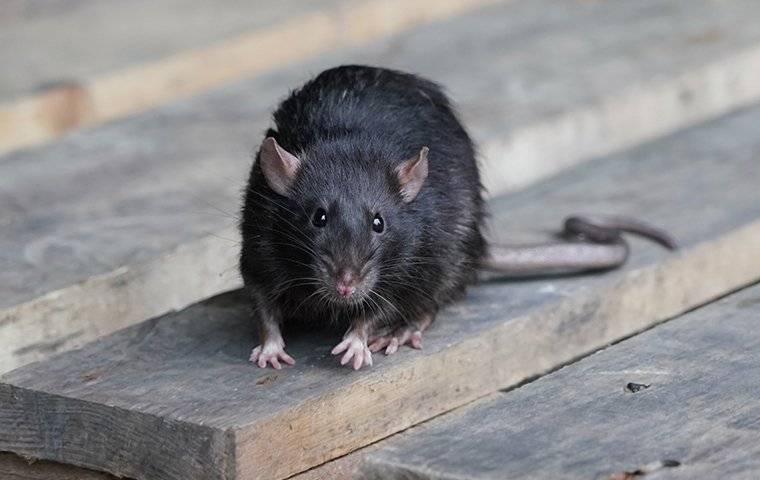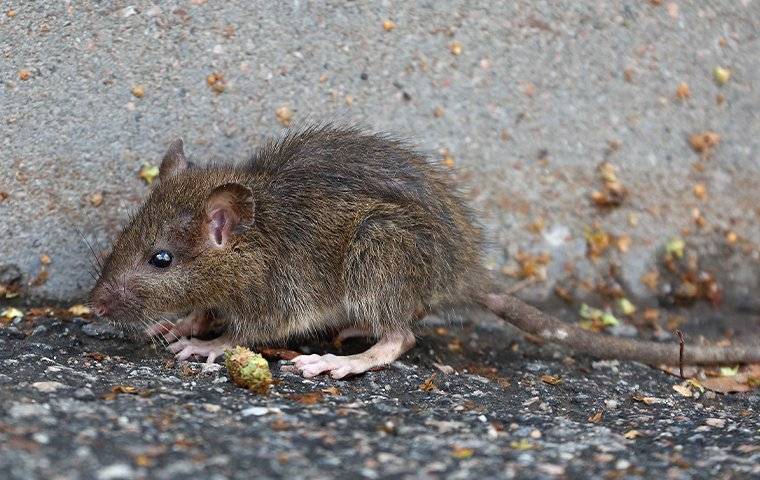Do you own a flashlight? Are you brave? If you answered yes to these two questions, you can find rats on your property (if there are any there to find). The secret is having the tools and temperament to get the job done—plus, knowing where to look. We can’t help with the first two, but we can certainly help guide you toward where you may find rats hiding on your Monmouth County property. We’ll also tell you what you can do about rats if you find them and what to do when you don’t find them and don’t want to ever find them. Before we start, we’d like to remind you that you don’t have to read an article about rats to solve a rat problem, you can jump to our contact page for industry-leading rodent pest control in Monmouth County. Our service specialists have the training and experience to locate and remove rodents from your property. With that said, let’s talk about a few things you can do about rats.


Finding Rats Despite Their Clever Hiding Spots
Get your flashlight out, it’s time to go looking for rats and the warning signs of rat activity. Wear something you don’t mind getting dirty, rats don’t hang out in clean places, and you’re going to have to go into places that are kind of gross.
Crawl Space: If you have a crawl space under your home, it is the first place you should check. You may see a rat or a rat’s nest in this space. You may also notice a rat hole. Norway rats create burrows in the ground and might choose to live in your crawl space. But, more than these, you’re likely to find feces. You’ll see their droppings if rats are living in the space or exploring it. You may also see dog waste. City rats sometimes take to eating the droppings of domesticated canines. If you find a stack of dog droppings, you have a rat problem. Also, look for grease stains on pipes. Rats often run along pipes and stain them with the grease from their fur.
Deck: Rats often get under decks, particularly if there is wood or leaf litter for rats to hide in. In this void, you might see rat droppings or a matted-down nest. If there is nothing under your deck, you should have no rats unless the void is somewhat protected.
Attic: Rats commonly hide in unfinished attics because they’re secluded. If you have a rat problem, you should see feces sprinkled on insulation or floorboards, stains on rafters, and nests tucked into recesses. If you have furniture in storage, inspect these items. Rats often hide inside couches, chairs, mattresses, and box springs in storage. If rats are in your stored items, you’re likely to smell urine when you get near the items.
Sheds: Rats like to hide under sheds and outbuildings. These provide protection from the elements. It is difficult to inspect underneath a shed. If you can shine a light under, the best you can do is inspect the exterior. Look for holes dug in the soil, holes chewed in the structures, droppings, and the scent of urine. You might also notice grease marks on the exterior, down low where a rat would touch as it ran along the side.
Junk Piles: Norway rats commonly create ground borrows under junk piles. They prefer wood and other organic materials but will also hide under general man-made junk. If you have wood rats, they’ll definitely be underneath scrap wood, campfire wood, construction materials, and other stacked wood.
Landscaping: Rodents love to hide in landscaping, particularly in dense areas of vegetation. Get down low and shine a light into your landscaping at dusk. If there are rats in there, you’ll see them moving around in the darkness.
Culverts: If you have an accessible culvert that abuts your property, it is a good place to look for rats. They often live near water sources and culverts provide an ideal environment.
When you find evidence of rat activity, the next step is to consider control methods to get rid of rats on your property. What is the best way to get rid of rats outside? We believe all-natural solutions are the best option.
Effective Ways To Deter Rats
The rats on your property have needs. They won’t want to live in your yard if they can’t find food and water. The key to natural control is managing these two resources. Here are a few examples:
- Remove bird feeders or move them to a location that is away from your exterior walls. Rats love seeds, and bird feeders will give them a reason to explore the perimeter around your home.
- Pick up nuts. Yards that have nut-producing trees often have more issues with rats. Squirrels aren’t the only animals that love nuts. Rats love them too. Stay on top of raking nuts up and store them in a plastic bag in a plastic bin (or remove them from your property). The bag helps to contain the nutty smell that attracts rats and the bin makes it more difficult for rats to get into bagged nuts.
- Keep bagged garbage in covered containers. As with nuts, a plastic bag helps to contain the smell of decaying food, which is an attractant for rats. The cover prevents rats from getting into your garbage. Don’t underestimate a rat’s ability to climb or jump its way into your receptacles. They’ll surprise you.
- Clean your gutters. When your gutter system gets clogged, rainwater runs over the sides and dampens your perimeter. A soaked perimeter will dry slowly after it rains and offer puddles of water for rats.
- Pick up containers in your yard. Any objects that can capture rainwater will provide watering holes for rats.
Do you see the role food and water play? But these are not the only attractants that bring rats into a yard.
- Remove yard clutter. A yard that is clear and open will deter rats. The reason for this is not obvious if you don’t know much about rats. Both rats and mice have poor eyesight and must use their other senses to navigate. When a rat enters your yard, it will feel around with its whiskers. If it detects an object on the ground, it will make a mental map of its location. It uses this mental map to quickly move through dimly lit or pitch dark environments.
- Trim grass and remove unnecessary vegetation. Overgrowth provides cover for rats as they move about in your yard. A trimmed yard is resistant to rat activity.
- Remove available hiding places. If you have any hiding places, use hardware cloth to keep rats out of these zones. For example, seal the void underneath your deck or put the cloth around the base of your shed. When you install hardware cloth, be sure to put it a foot under the ground so that rats can’t tunnel under.
When you remove attractants, you deter rat activity and reduce the chances that rats will get into your home. In many cases, this is all the control that is necessary. But what do you do if you already have rats in your Monmouth County home?
Is It Possible To Have A Rat-Free Home Without Killing Them?
We’re often asked this question. We can understand why. Rats aren’t typically dangerous animals. It is rare to hear of rats attacking humans. So, when you see signs of rats in your home, you may want to take steps that don’t require eliminating the animals. Our recommendation is food control. If rats can’t find food in your home, they’ll start extensively looking outside for it. If you seal entry points just after dusk, you may keep the rats from getting back inside. After this, apply the prevention tips above and you should be done with those rats. It is a difficult process, and the rats may choose to stay no matter what you do. If this happens, it is best to contact a pest control professional.
Total Rat Control For Monmouth County Residents
Latest Blogs
Stay informed about pests and pest related issues in your area!
Dangerous Spiders Of Columbia, MD
If three different spiders are placed in front of you and you are told to pick up the harmless one to win a million dollars, would you feel confident enough to do it?
The Easiest Way To Get Bats Off Your Monmouth County Property
Do you see an increased amount of bats around your home lately? Learn the best way to get bats off of your property.
Are The Fleas In Monmouth County Causing You Headaches?
Prevent and treat fleas with help from Alliance Pest Services in Monmouth County.
Request Your Free Quote
"*" indicates required fields


